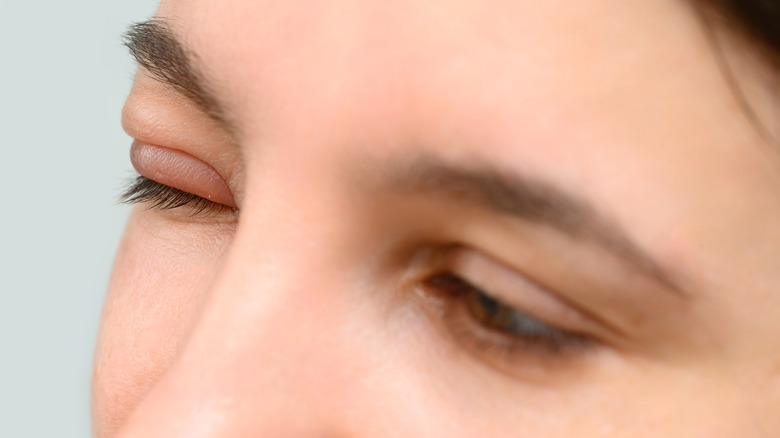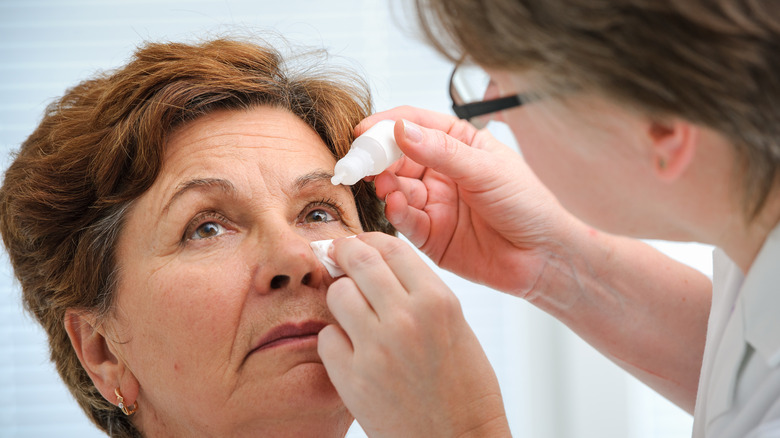When To See A Doctor About Your Swollen Eyelid
The skin on our eyelids is very delicate. In fact, it doesn't even measure up to 1 millimeter in thickness, reports WebMD. Even so, that doesn't stop our eyelids from stretching and swelling up like balloons when prompted. What causes our eyelids to swell and when is it cause for concern?
First and foremost, a swollen eyelid isn't so much a health condition of its own, but rather a symptom of something else going on. Sometimes, a puffy eyelid may simply be the product of a poor night's sleep, a heavy bout of crying, or irritation from a makeup product that has made its way in or around the eyes, explains Medical News Today. In other cases, a swollen eyelid may be triggered by an allergic reaction, a clogged oil gland, or a blocked tear duct. Certain health conditions may also be responsible for a swollen eyelid, notes WebMD. Such conditions include pink eye, shingles, the development of a stye, or blepharitis — a condition characterized by inflammation of the eyelids.
When to seek emergency care for a swollen eyelid
Although not seen quite as frequently, swollen eyelids can sometimes be attributed to hypothyroidism, in which an individual has an under-active thyroid, according to research published in Merck Manual. Other uncommon causes include disorders characterized by body swelling, such as nephrotic syndrome, a form of kidney disease. In the rarest of cases, two conditions known as orbital cellulitis or cavernous sinus thrombosis could be the cause of eyelid swelling. In the case of orbital cellulitis, the bones housing the eye have become infected. In cases of cavernous sinus thrombosis, an infected blood clot has created a vein blockage on the underside of the brain. Both conditions are considered medical emergencies.
Of course, not all instances of eyelid swelling require prompt medical attention. Depending on the reason for your swollen eyelid, simple at-home treatment methods, such as rest or applying a cool compress to the area, may provide effective relief, explains WebMD. For cases of infection, antibiotics, eye drops, or other medications may be warranted. So how do you know when it's time to call your doctor? Experts state that if the swelling fails to improve within two days, you'll want to reach out to your physician. However, head to the nearest emergency room if eyelid swelling becomes severe, is accompanied by fever, drooping of the eyelid, light sensitivity, vision loss, or excessive redness, inflammation, or heat sensations.


